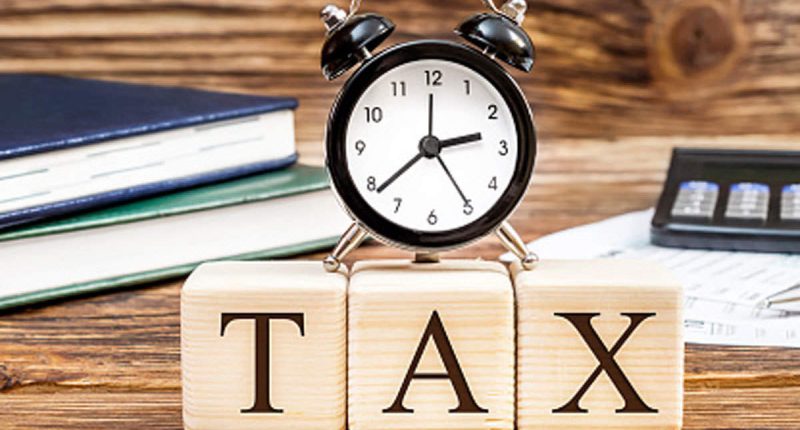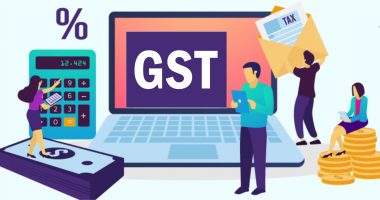The 48th GST Council meeting, held virtually, concluded on the afternoon of 17th December. The Union Finance Minister Smt. Nirmala Sitharaman chaired the meeting, with the presence of the Union Minister of State for Finance Shri Pankaj Choudhary and Finance Ministers of states and Union Territories (with legislature). Senior officers of the Ministry of Finance and states and UTs also attended the meeting.
The Council meeting was followed by a press conference, highlighting the key decisions taken during the meeting, from matters spanning decriminalisation of offences under GST to measures streamlining GST compliance. Let’s take a look at them.
With regard to the decriminalisation of offences under GST, the Council proposed to raise the minimum threshold of the tax amount for launching prosecution under GST from Rs.1 crore to Rs.2 crore. This would be in all cases except those involving the issue of invoices without the supply of goods/services. Further, the Council proposed to reduce the compounding amount from the current range of 50% to 150% of the tax amount to the range of 25% to 100%. Certain offences, too, would be decriminalised involving the obstruction of an officer in the discharge of their duties, the deliberate tempering of material evidence, and the failure to supply information, where required.
The Council also proposed to facilitate e-commerce for micro-enterprises. This is based on the in-principle approval in the previous Council meeting that allowed unregistered suppliers and composition taxpayers to make intra-state supplies of goods through an e-commerce operator. The GST Council approved the amendments in both the GST Act and Rules to enable the same. The scheme may be implemented from 1st October 2023.
Reversal of input tax credit
The GST Council has recommended the amendment of Rule 37(1) of the CGST Rules, 2017, with retrospective effect from 1st October 2022, in terms of the second proviso to Section 16 of the CGST Act. This amendment will provide for the reversal of input tax credit (ITC) only proportionate to that amount not paid to the supplier in regard to the value of the supply, including the tax payable.
The Council also recommended inserting Rule 37A under CGST Rules, 2017, to prescribe the mechanism for the reversal of ITC by a taxpayer in the event of non-payment of the tax amount by the supplier within the specified date and the mechanism for re-availing of such ITC if the supplier pays tax subsequently. This will help ease compliance under Section 16(2)(c) of the CGST Act, 2017.
Measures for streamlining GST compliance
The GST Council also proposed a series of measures to streamline compliance under the GST law. There was a proposal put forth into conducting a pilot for biometric-based Aadhaar authentication and the risk-based physical verification of registration applicants in Gujarat. This move should, hopefully, help tackle the menace of fake or fraudulently obtained registrations.
Another move to combat fraudulent registrations would be to capture the PAN-linked mobile number and email address from the CBDT database and record the same in Form GST REG-01. Further, an OTP-based verification would be conducted at the time of registration on the mobile number and email address to restrict the misuse of the PAN of a person by unscrupulous fraudsters.
The government also plans to amend Sections 37, 39, 44 and 52 of the CGST Act, 2017, in order to restrict the filing of returns or statements to a maximum of three years from the deadline of filing of the relevant return or statement. Besides, Form GSTR-1 would be amended to provide for reporting details of supplies made through e-commerce operators covered under section 52 and section 9(5) of the CGST Act, 2017.
A new Rule 88C and Form GST DRC-01B will also be inserted in the CGST Rules, 2017, to intimate taxpayers about the differences between liabilities reported by the taxpayer in Form GSTR-1 and GSTR-3B for a particular tax period where the difference exceeds the specified limits. This will enable taxpayers to either pay the differential liability or explain the difference.
Further, a clause (d) would be inserted under Rule 59(6) of the CGST Rules, 2017, to restrict the furnishing of Form GSTR-1 for a subsequent tax period where a taxpayer has not deposited the amount specified in the intimation nor has furnished an explanation. This move would push taxpayers to pay or explain the reason for differences in liabilities reported without the intervention of tax officers.
Other key decisions taken
The GST Council also took certain other decisions, such as providing clarity that the ‘No Claim Bonus’ offered by insurance companies will be deductible for the valuation of insurance services, and no GST will apply on the same. There will be no GST payable where a residential dwelling is rented to a registered person if rented in their personal capacity for use as their own residence and on their own account, i.e. not for business. Besides, incentives paid by the Central Government to banks under the scheme for the promotion of RuPay Debit Cards and low-value BHIM-UPI transactions will not be taxable.
The Council also decided to include the supply of mentha arvensis under reverse charge, as has been done for mentha oil to reduce tax evasion. Further, it was decided that a higher rate of compensation cess of 22% would apply to SUVs with an engine capacity exceeding 1500 cc, a ground clearance of 170 mm or above, and length exceeding 4000 mm.
The following circulars will soon be issued in order to remove ambiguity and legal disputes on various issues –
- The procedure for verification of ITC in cases involving a difference in input tax credit availed in GSTR-3B vs GSTR-2A during FY 2017-18 and 2018-19.
- Clarifying the manner of re-determination of demand under Section 75(2) of the CGST Act, 2017.
- Clarification in respect of the applicability of e-invoicing for an entity.
There were also certain GST rate reductions and rate clarifications given. However, no GST rate hikes were announced in this Council meeting. Further, unregistered persons under GST are expected to get new refund rules where their construction contracts or long-term insurance policies get cancelled.
For any clarifications/feedback on the topic, please contact the writer at athena.rebello@clear.in

I’m a Chartered Accountant by profession and a writer by passion. ClearTax lets me be both. I love travel, hot tubs, and coffee. I believe that life is short, so I always eat dessert first. Wait.. life is also too short to be reading bios… Go read my articles!




